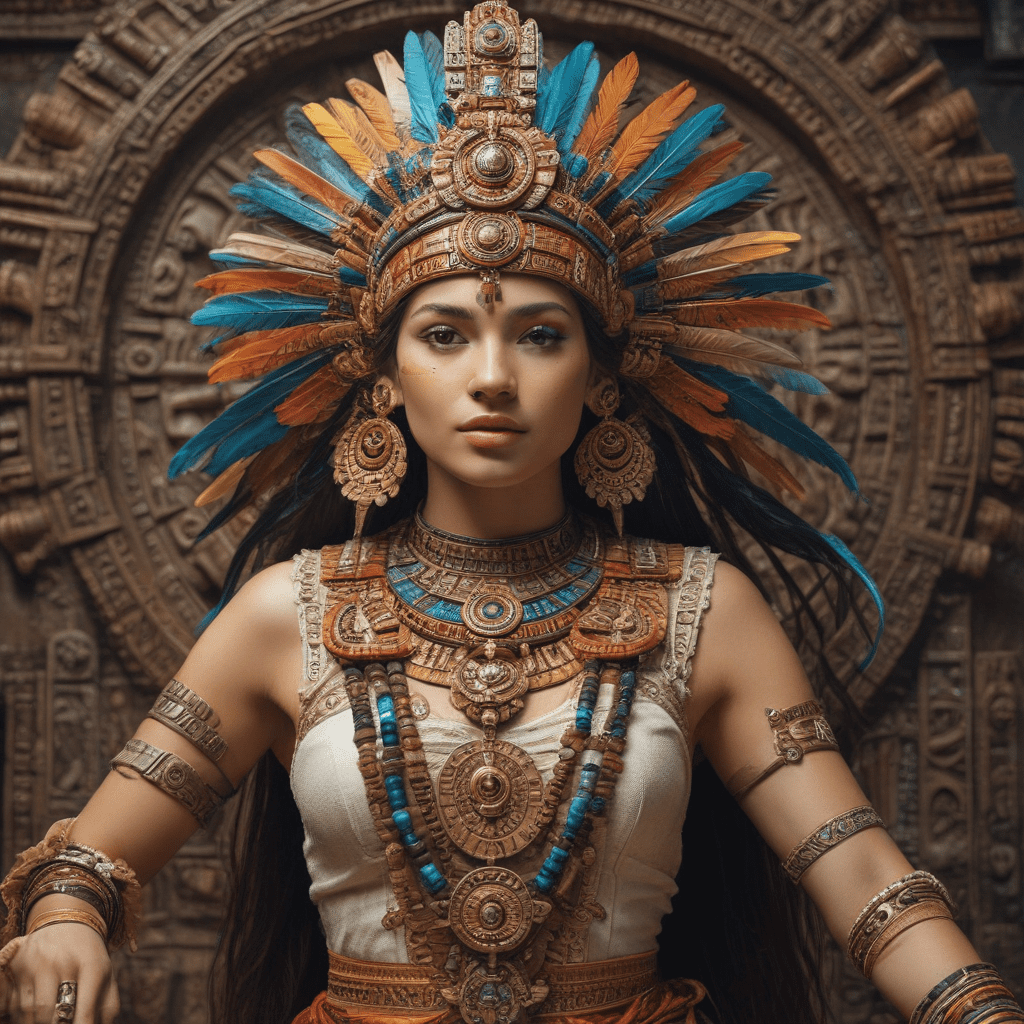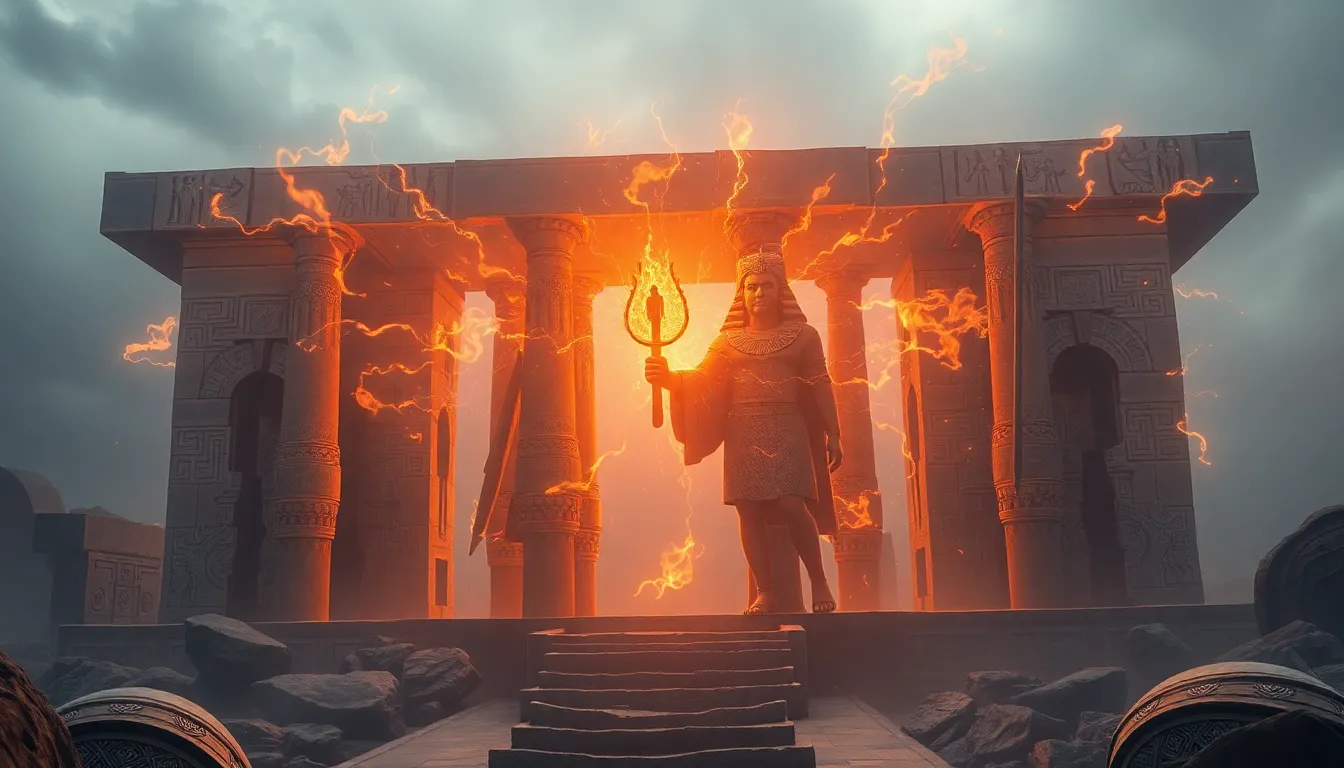The Influence of Spanish Conquest on Mayan Mythology
I. Introduction
The world of Mayan mythology is a vibrant tapestry of deities, creation myths, and rituals that have captivated scholars and enthusiasts for centuries. Yet, this rich cultural landscape was forever altered by the arrival of the Spanish conquistadors in the 16th century. The impact of conquest on Mayan mythology was multifaceted, leading to the destruction of sacred texts, the forced conversion to Catholicism, and the complex phenomenon of syncretism.
II. Pre-Conquest Mayan Mythology
Before the arrival of the Spanish, the Maya had a complex and sophisticated belief system centered around a pantheon of deities. Prominent figures included Itzamna, the creator god; Hunab Ku, the supreme deity; and Chaac, the god of rain. These deities played crucial roles in shaping the Maya's understanding of the cosmos, agriculture, and the afterlife. Creation myths, such as the Popol Vuh, narrated the origins of the universe and humanity, while underworld stories explored the realm of the dead. Rituals and offerings, often involving bloodletting and sacrifice, served as a means of appeasing the gods and ensuring cosmic balance.
III. The Impact of Conquest
The Spanish conquest of the Yucatan peninsula in the 16th century marked a turning point in Mayan history. Spanish missionaries, armed with the zeal of spreading Christianity, embarked on a campaign to eradicate indigenous beliefs. Temples were desecrated, sacred texts were burned, and the practice of traditional rituals was outlawed. The Maya were forced to convert to Catholicism, with their deities and practices demonized as pagan and heretical.
IV. Theories of Influence
The Spanish conquest profoundly altered the perception of Mayan deities. Some gods, like Itzamna, were associated with Christian figures, such as Jesus Christ, while others were demonized and transformed into malevolent spirits. The introduction of new religious concepts, such as heaven and hell, influenced Mayan beliefs about the afterlife. However, despite the relentless persecution, Mayan mythology did not simply disappear. Instead, it adapted and blended with Catholic elements, giving rise to a unique phenomenon known as syncretism.
V. Specific Examples
The influence of Spanish conquest on Mayan mythology can be observed in the transformation of specific deities and myths. For instance, the rain god Chaac was often depicted with a cross-shaped lightning bolt, reflecting the fusion of indigenous beliefs with Christian symbolism. Similarly, the celebration of the Day of the Dead evolved into a blend of Mayan and Catholic traditions, honoring both ancestors and deceased saints.
VI. Cultural Resistance and Preservation
Despite the immense pressure to abandon their beliefs, Mayan communities fiercely resisted the cultural eradication imposed by the Spanish conquistadors. Oral traditions, passed down through generations, preserved the stories of their deities, creation myths, and ancestral wisdom. Clandestine rituals, conducted in secret, kept the flames of their faith alive. Mayan communities adapted their traditional practices, blending them with Catholic elements to create a unique syncretic form of their religion. This cultural resistance ensured the survival of Mayan mythology, albeit in a transformed and concealed state.
VII. Modern Efforts to Revive and Reclaim
In recent years, there has been a growing movement among Mayan communities to reclaim and revitalize their traditional beliefs. The suppression of their mythology for centuries has given rise to a sense of cultural rediscovery and a renewed appreciation for their ancestral heritage. Scholars and researchers are working collaboratively with Mayan communities to document, interpret, and preserve their mythology. Educational initiatives and cultural events are fostering awareness and understanding of Mayan beliefs among younger generations. These efforts are crucial in ensuring the continuity and transmission of Mayan mythology for future generations.
VIII. Conclusion
The impact of the Spanish conquest on Mayan mythology was multifaceted and enduring. The destruction of sacred texts, the forced conversion to Catholicism, and the suppression of indigenous beliefs led to significant transformations in the Maya's understanding of their deities, rituals, and beliefs. Yet, despite these challenges, Mayan mythology did not disappear. Instead, it adapted, blended with Christian elements, and survived through cultural resistance and clandestine practices. Today, there are ongoing efforts to revive and reclaim Mayan mythology, ensuring its continuity for future generations. The study of the influence of Spanish conquest on Mayan mythology provides貴重なinsights into the complex relationship between culture, colonialism, and the resilience of indigenous beliefs.
IX. References
- Tedlock, Barbara. Time and the Highland Maya. Albuquerque: University of New Mexico Press, 1982.
- Roys, Ralph L. The Book of Chilam Balam of Chumayel. Norman: University of Oklahoma Press, 1967.
- Thompson, J. Eric S. Maya History and Religion. Norman: University of Oklahoma Press, 1970.
- Taube, Karl A. The Майя of Mexico and Central America: Religion, Ritual, and Mythology. London: Thames & Hudson, 2012.
- Monaghan, John. The Encyclopedia of Celts. New York: Facts on File, 2004.
X. Further Research
- Exploring the impact of Spanish conquest on the mythology of other indigenous cultures in the Americas.
- Investigating the role of syncretism in the preservation and adaptation of indigenous beliefs.
- Analyzing contemporary efforts to revitalize and reclaim indigenous mythology in the face of cultural globalization.
- Examining the ethical considerations involved in studying and representing indigenous cultures and beliefs.
Frequently Asked Questions (FAQs)
1. How did the Spanish conquest affect the practice of Mayan rituals?
The Spanish conquest led to the suppression of traditional Mayan rituals, forcing the Maya to convert to Catholicism. However, many Mayan communities adapted their rituals, blending them with Christian elements to create a syncretic form of their religion. These clandestine rituals played a crucial role in preserving Mayan beliefs and cultural identity.
2. Did the Maya completely abandon their deities after the Spanish conquest?
No, the Maya did not completely abandon their deities after the Spanish conquest. While they were forced to convert to Catholicism, many Maya continued to worship their traditional gods in secret. They adapted their deities to fit with Christian beliefs, associating them with Catholic saints or transforming them into benevolent or malevolent spirits.
3. How are Mayan communities reclaiming their mythology today?
Modern efforts to reclaim Mayan mythology involve collaboration between scholars and Mayan communities to document, interpret, and preserve their beliefs. Educational initiatives and cultural events are fostering awareness and understanding of Mayan mythology among younger generations. These efforts aim to ensure the continuity and transmission of Mayan mythology for future generations.
4. Why is it important to study the influence of the Spanish conquest on Mayan mythology?
Studying the influence of Spanish conquest on Mayan mythology provides valuable insights into the complex relationship between culture, colonialism, and the resilience of indigenous beliefs. It allows us to understand how indigenous cultures adapt and survive in the face of external pressures and how they negotiate their identity within a dominant cultural framework.
5. What are the ethical considerations involved in studying indigenous mythology?
It is crucial to approach the study of indigenous mythology with respect and sensitivity. Researchers should collaborate with indigenous communities to ensure that their beliefs are represented accurately and ethically. They should also be mindful of the potential impact of their research on indigenous cultures and communities.




